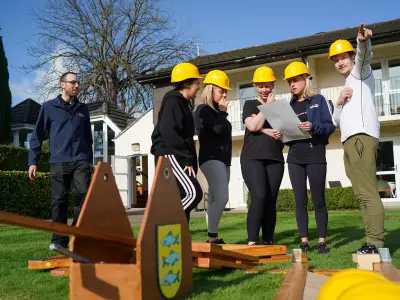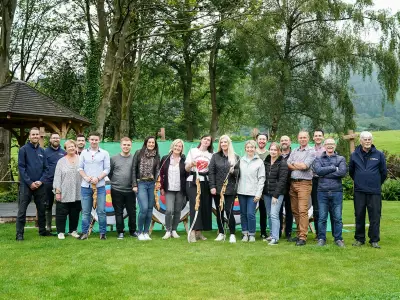
It can be very hard to maintain a positive working environment when you’re overstretched and under pressure yourself. However, when the work is piling up and there is a lot to do it’s more important than ever to engage your team. By reducing stress levels and working together to achieve your goals, you can improve your performance and increase employee engagement.
Ask yourself - “What does the company expect from my team that no other group can accomplish?” Once you have identified what it is that your team does to add value to the business, you can prioritise your tasks accordingly. Focus on those things that will really add value. By doing this, you give your team a clear purpose and shared vision as well as greater clarity about which tasks are most important.
It can be difficult to find the time to complete a large task if you’re constantly interrupted by calls or emails. When you get distracted by something or someone at work it can take 15-20 minutes to refocus on the task at hand. To avoid this, it can be helpful to schedule time to focus. Book a meeting room or switch off your phone/email to avoid distractions. Work as a team so that one person can take time to focus whilst the others cover any urgent calls or emails. By working together in this way, you can work more efficiently and can reduce stress levels within the group.
When you’re very busy it’s easy to get into the habit of working through lunch and missing breaks. However, this is actually counterproductive. If you keep working, you’ll get tired, lose focus or suffer burn out. Encourage your team to take a break from work during the day and if possible, to get up and out of the office. Take a walk or pop out for some lunch and you’ll find that you’re refreshed and ready to get on with the afternoon’s tasks on your return.

Talk to your team about the things that make their jobs stressful. Meeting with individuals (ideally face-to-face) and listening to their concerns will make an employee feel heard and understood and help to lower their stress levels as well as your own. Some factors such as poor quality or failing equipment can be easy to fix. Other issues such as understaffing or problems with company policies can be more difficult, but by identifying the issue and agreeing to escalate concerns you can show your team you care and that you are trying to affect change.
When you’re busy and stressed at work, it’s easy to neglect your physical health. However, good nutrition and exercise will help to ensure that you’re stronger and more resilient to stress. Encourage your team to go for a walk during breaks or bring in healthy snacks if you’re having a lunch meeting. If staff are unwell then let them know its ok to take time off to focus on getting better.
It’s such an obvious one but it’s surprising how easy it is to forget to thank your team for their support when you’re busy and under pressure. However, taking time to recognise and reward good performance is so important. Make sure that you show your team that they are valued and that all of their hard work is appreciated. If you know you are likely to have a high stress / busy period, then schedule some time after that event with less pressing deadlines for everyone to recover.
Having your employees suffering from work-related stress can result in lower productivity, lost workdays, and a higher turnover of staff. When you’re under pressure yourself it’s harder to find time to motivate, encourage and support your team, but by doing so you will reap the rewards.

23rd July, 2024
Team cohesion should be the goal for any people manager wanting to achieve high performance and smash their targets. Without a cohesive team, business goals can be diffi…

15th October, 2024
Team building is a big part of the activities that we organise at Events Made Simple. But what is team building, and why is it so important in business in particular? T…

1st October, 2024
Psychological safety at work is a key factor for an organisation's success, employee well-being, and productivity. A psychologically safe workplace means employees feel…